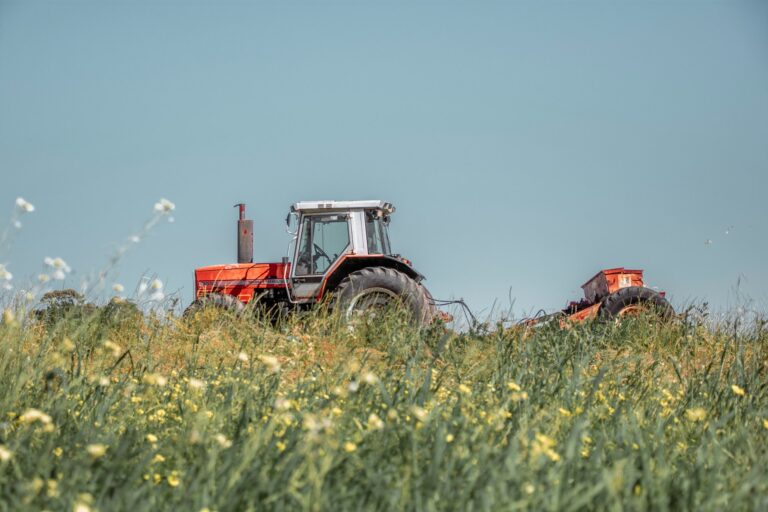Decarbonising food systems: a comparative analysis of UK and EU policies

Download
This report examines how the UK and selected EU member states are developing policy to decarbonise food systems. It focuses on the interplay between production- and consumption-side measures and draws out lessons for the UK through document analysis and interviews with policymakers and experts. Case studies from Denmark, France, Spain and Poland offer comparative insights on policy design, political feasibility and implementation strategies that could inform UK food system reform.
High–level insights from EU case studies
- Policy coherence through food systems framing: Although now politically de-prioritised, the EU’s Farm to Fork Strategy and the Strategic Dialogue on the Future of Agriculture demonstrated how supply- and demand-side levers can be aligned under a shared food system vision with considered co-design processes with relevant stakeholders.
- Denmark: Denmark is the first EU country to commit to a carbon tax on livestock, developed through extensive negotiation with farmers and civil society. This approach underscores the value of structured dialogue and political sequencing and a recognition that the emission profile of agriculture will only continue to rise as other sectors decarbonise.
- France: France’s EGalim law has created a legal framework that attempts to rebalance commercial relationships between farmers and the supply chain while also mandating sustainable food procurement in schools and public institutions.
- Poland: With a fragmented smallholder farming structure, Poland has prioritised training, peer learning, and eco-scheme delivery through advisory services.
- Spain: Spain integrates adaptation into food and land-use policy, including legal frameworks on food waste and regional planning.
Implications for the UK
UK administrations have increasingly conditionalised subsidy payments to environmental improvements in post-Brexit agri-environment policy. Scotland and Northern Ireland have developed innovative policies targeting production efficiencies through maximum slaughter ages and calving intervals. However, measures to target livestock emissions remain inconsistent across the UK administrations, and demand-side policies have not kept pace. There is little integration between climate, health and dietary policy — and limited political will to regulate consumption of high-carbon foods. While promising efforts are underway in procurement reform, education and protein innovation, these remain insufficiently supported or coordinated.
There is also a clear gap between production and consumption policies to support a food system transformation. For example, while farm-level interventions are encouraged through subsidy reform, parallel measures to influence consumer demand (e.g. diet guidelines, procurement, labelling) are weak or voluntary. This disconnect risks undermining mitigation efforts and increasing reliance on food imports. Interviewees across the UK highlighted structural and political barriers that limit reform, yet there are also signs of innovation, particularly in Northern Ireland’s genetic efficiency schemes and Scotland’s farm auditing model.
Recommendations for the UK
- In the UK, the agencies responsible for agricultural, climate and environmental policy should continually facilitate dialogue between farming unions, environmental non-governmental organisations, academia and other relevant stakeholders.
- The UK administrations need to articulate a policy roadmap for how they will sustainably decarbonise agricultural production in line with independent advice from the Climate Change Committee. Particular emphasis needs to be placed on addressing methane and nitrous oxide emissions from the livestock sector and must include incentives to integrate low-methane genetics into national herds, methane suppressants for intensive operations, and measures to improve efficiency by selecting for desirable heritable traits including live-weight-gain and resistance to parasites and infection.
- The respective government departments responsible for health, farming, environment and economics/finance in the UK administrations should coordinate and pursue regulatory options to reduce consumption of high-carbon foodstuffs, particularly foodstuffs from ruminant livestock. Each department should identify levers within its remit (e.g. in England, health campaigns and reformulation initiatives at the Department of Health and Social Care [DHSC]; streamlined regulatory approval for new foodstuffs at the Department for Business and Trade) but determine their implementation through existing cross-government fora (e.g. the Carbon Budget Delivery Plan or the National Food Strategy) to align on outcomes.
- Using agricultural subsidies as a fiscal instrument to redirect investments towards lower greenhouse gas emissions food production would enable a shift towards plant-based protein production over livestock. Because this recommendation addresses topics across health, environment, agriculture and treasury mandates, the repurposing of subsidies should be supported by joint action. This would involve the Department for Environment, Food & Rural Affairs (Defra) in restructuring subsidy frameworks within environmental land management schemes, the DHSC ensuring health outcomes are accounted for as a set of criteria, HM Treasury reallocating funds, and each of the devolved administrations adapting their own subsidy schemes.
- Farmers may be more receptive to policy measures that emphasise resilience and manage risks associated with climate change-driven extreme weather events. The UK administrations’ agriculture and environment ministries should emphasise resilience and risk management in strategic communications and subsidy programmes given the overlap in actions between these two priorities. Lack of clarity was flagged by interviewees as a factor for the low uptake of post-Common Agricultural Policy (CAP) schemes, suggesting that clear step-by-step guidelines would increase the popularity of environmental incentives.
- Data and evidence gaps (e.g. due to the fragmentation of public data) continue to limit understanding of farm-level emission profiles and the expected efficacy of mitigation measures. Agricultural and environmental agencies in the UK must continue to invest in high-quality programmes and farm auditing, targeting breakthroughs in methane suppressants, genetics and nitrification inhibitors.

